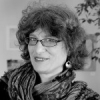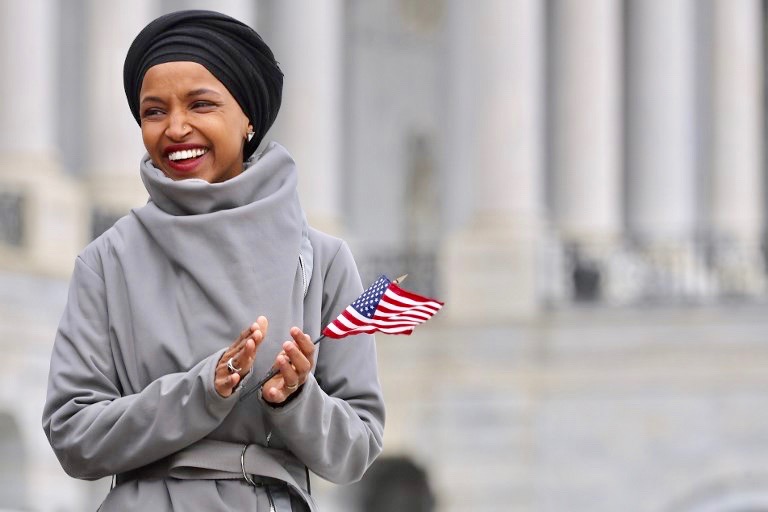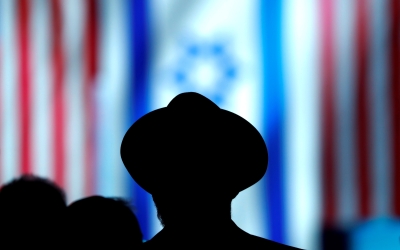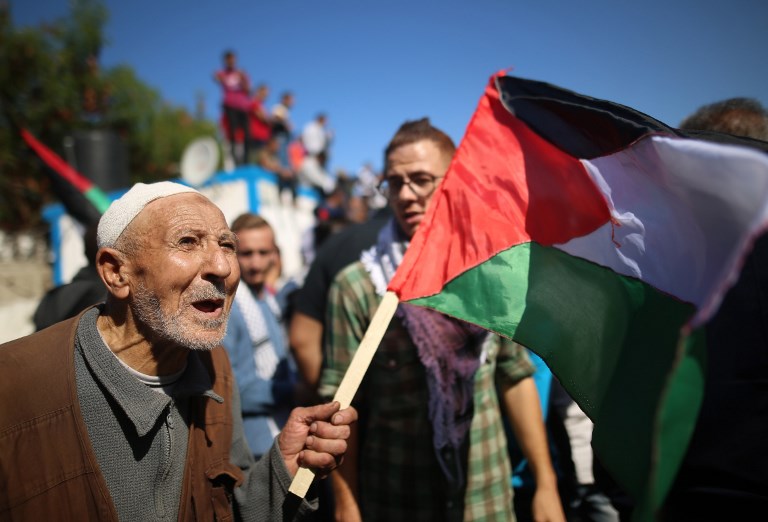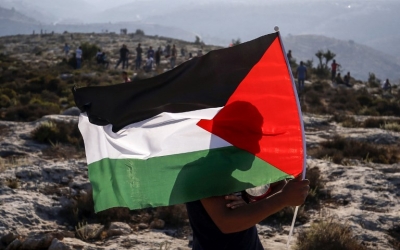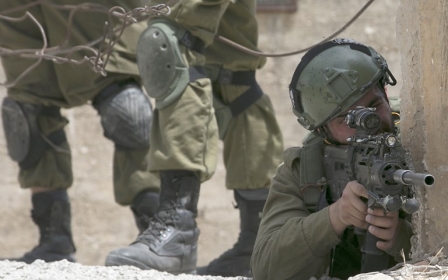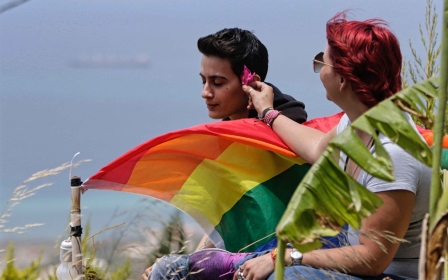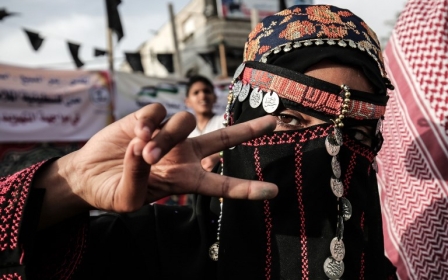Indivisible justice: Why supporters of Palestine must stand with other oppressed communities

An "earthquake" happened in Congress, Mondoweiss reported last month, as a bill initially proposed by Democratic leaders to condemn anti-semitism was significantly modified, within a matter of hours, after intense organising and activism that denounced it as inappropriate.
The bill had been drafted with the intention of silencing Minnesota Congresswoman Ilhan Omar, who has come under attack for denouncing the pervasive influence of the American Israel Public Affairs Committee (AIPAC) on US politics, and for speaking in support of justice for Palestinians.
Anti-racist grassroots organisers were quick to detect the extreme Islamophobia and racism behind the attacks on Omar - whose advocacy for other marginalised communities has not brought any "progressive" ire upon her - and were outraged at the text of a bill that denounced anti-semitism, but not the rampant anti-black, anti-Muslim, anti-Arab and anti-immigrant current also spreading across the nation.
Shutting down criticism of Israel
They insisted, correctly, that nothing Omar has said or written even comes close to anti-semitism. The attacks on her come from another impulse, one more concerned with shutting down criticism of Israel than with protecting Jews.
New MEE newsletter: Jerusalem Dispatch
Sign up to get the latest insights and analysis on Israel-Palestine, alongside Turkey Unpacked and other MEE newsletters
After all, if those Democrats were genuinely interested in sanctioning anti-Semites, they would have issued a statement about President Donald Trump, and many others, whose pronouncements have weightier consequences than anything Omar could say.
The spike in anti-semitism, as well as attacks in the US, has been tied to the Trump Administration's embrace of white nationalism, rather than anything Muslim American leaders have ever promoted.
The spike in anti-semitic as well as attacks in the US has been tied to the Trump Administration's embrace of white nationalism
Nevertheless, many expressed disappointment with the text of the new, modified bill, complaining that it "diluted" the issue by linking anti-semitism with Islamophobia and xenophobia.
Some wanted the bill to condemn only anti-semitism, as the initial text did; others felt that, while a condemnation of anti-Arab racism and Islamophobia was way overdue, it should not be lumped in with a denunciation of anti-semitism.
Yet, the "earthquake" - the seismic political moment we are living in the US - is particularly opportune for a better understanding of the Palestinian struggle within the greater global context of hyper-militarised settler-colonialism, state-sanctioned violence against disenfranchised communities, and institutionalised political racism.
Most activists who have been involved in the struggle to achieve justice for Palestinians are familiar with what we refer to as PEP syndrome: Progressive Except for Palestine.
It's the wall we hit when we are discussing anti-racism, but our listeners don't include Palestine; when we discuss indigenous sovereignty and self-determination, but our proponents cannot extend that to Palestinians.
PEPs versus POOPs
Author Steven Salaita recently wrote an article eloquently titled "Except for Palestine," in which he questions the possibility of being progressive when one excludes the Palestinian struggle.
Indeed, I am of the belief that the exclusion negates the claim. Justice is indivisible: as soon as we deny it to a people, we are privileging another, and that is not justice - it is racism.
But the Democratic Party generally, with very few exceptions, as well as a large percentage of liberals, are afflicted with PEP. They are progressives except for Palestine.
They only criticised Omar when she denounced Israel's violations of the human rights of Palestinians.
A phenomenon less discussed in Palestinian activist circles is what is known as POOP, or Progressive Only On Palestine.
The argument POOPs make is that Palestine presents exceptional characteristics: the US is directly involved in maintaining Israel’s injustice and occupation (as if the US itself was not occupied land), our taxes fund Israel’s crimes (as if they don’t also fund US crimes, both here and globally).
And we are not even-handed mediators of the Palestine-Israel conflict (as if we were in Saudi Arabia's war on Yemen, or Nicaragua's and Guatemala's military attacks on their impoverished indigenous populations).
However, just as PEP is a logistical impossibility, so is POOP.
One cannot be "progressive" but not opposed to all forms of racism, including anti-black racism, anti-immigrant racism, homophobia and transphobia.
One cannot believe in self-determination for a country's indigenous people - the Palestinians in their own homeland - without holding oneself accountable for the benefits of being a settler on Turtle Island.
One cannot denounce Israel's theft of Palestinian land and natural resources without opposing environmental racism and gentrification in the US. Yet, there are some who feel that linking our struggles dilute them, rather than strengthen and enrich them.
A common struggle
But these struggles are one and the same: if we denounce the violence of the Israeli occupation, we must denounce the hyper-militarisation of the US police as a result of law enforcement officers receiving their training in Israel, or by Israeli army veterans.
If we denounce Israel's theft of Palestinian natural resources, we must denounce the Dakota pipeline cutting through Sioux land.
Water is life in North America, just as it is in Palestine.
The lives of young African Americans killed by racist police all over this country matter just as much as Palestinian lives lost to Israeli soldiers and settlers.
The understanding that we are in a common struggle is not only convenient when it comes to explaining injustice against Palestine to PEPs, who can better relate when we speak to them of the parallels between the criminalisation of people of colour in the US and Israel’s criminalisation of Palestinians.
It should also help POOPs, who have a hard time grasping the importance of common struggles against a greater oppressor.
This understanding of joint struggle is becoming more obvious every day in the activism and organising of Muslim leaders, such as Linda Sarsour, Rashida Tlaib and Omar, who loudly denounce Israel's reactionary policies, but also - and just as much - stand against racism of all kinds, including anti-semitism, and for progressive struggles for equality and justice in the US, at the US-Mexico border, and in Yemen, Iran, Venezuela and other countries.
Denouncing all forms of racism
Let us remember, after all, that Tlaib was not elected for her stance on Palestine, but because of her locally grounded activism and organising in her hometown of Detroit.
The constituents who elected her were predominantly African American, and many might have been unfamiliar with Palestine until after her election - but they voted for her because she fought gentrification and environmental racism in her city.
Omar's activism before she was elected focused on housing, immigrant rights, fully funded public education, and healthcare for all. She was only attacked when she spoke for Palestinian rights, but we cannot only support her for her stance on Palestine and ignore the other very important causes she organises around.
Intersectionality is not one-way, nor should solidarity be transactional: I'll sign your petition if you sign mine
The necessity to denounce and oppose all forms of racism, sexism, xenophobia, classism and more must also inform the activism of POOPs, who need to understand that Palestine is not an exception, and that linking it to other struggles is not a dilution, but critical engagement.
Intersectionality is not one-way, nor should solidarity be transactional: I'll sign your petition if you sign mine.
Intersectional struggles and solidarity hinge on the understanding that we are enmeshed in a global web, that justice is indivisible, and that if we do not stand together across arbitrary borders of nation-state, religion, ethnicity and sexuality, then we are part of the problem.
Human rights defenders
This understanding was made clear in a recent interview with Nadia Ben Youssef, co-director of the Adalah Justice Project, who explained that Adalah hasn't hosted a single event focused on Palestine alone in the last year.
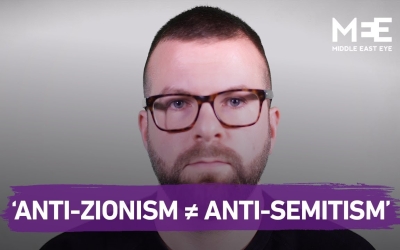
Instead, it partnered with other progressive and racial-justice organisations.
"Our whole theory of change can be distilled as de-exceptionalizing Israel-Palestine, Ben Youssef explained, adding: "I don’t want more Palestinian rights activists. I want more human rights defenders."
And it was expressed most recently by Alexandria Ocasio-Cortez, who tweeted: "Simply put, I don't believe in putting children in cages. Pretty Straightforward value. I don't care if it's American kids, Mexican kids, or Palestinian kids. I vote against funding it on the US border too. Not my values. It would be inconsistent with my values to fund it anywhere."
These young and upcoming leaders, organisers, and activists, who appreciate the interconnectedness of disenfranchised people's joint struggle, and whose values are grounded in the indivisibility of justice, give marginalised communities hope in otherwise very challenging times.
The views expressed in this article belong to the author and do not necessarily reflect the editorial policy of Middle East Eye.
Middle East Eye delivers independent and unrivalled coverage and analysis of the Middle East, North Africa and beyond. To learn more about republishing this content and the associated fees, please fill out this form. More about MEE can be found here.


